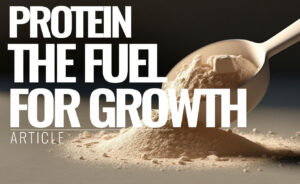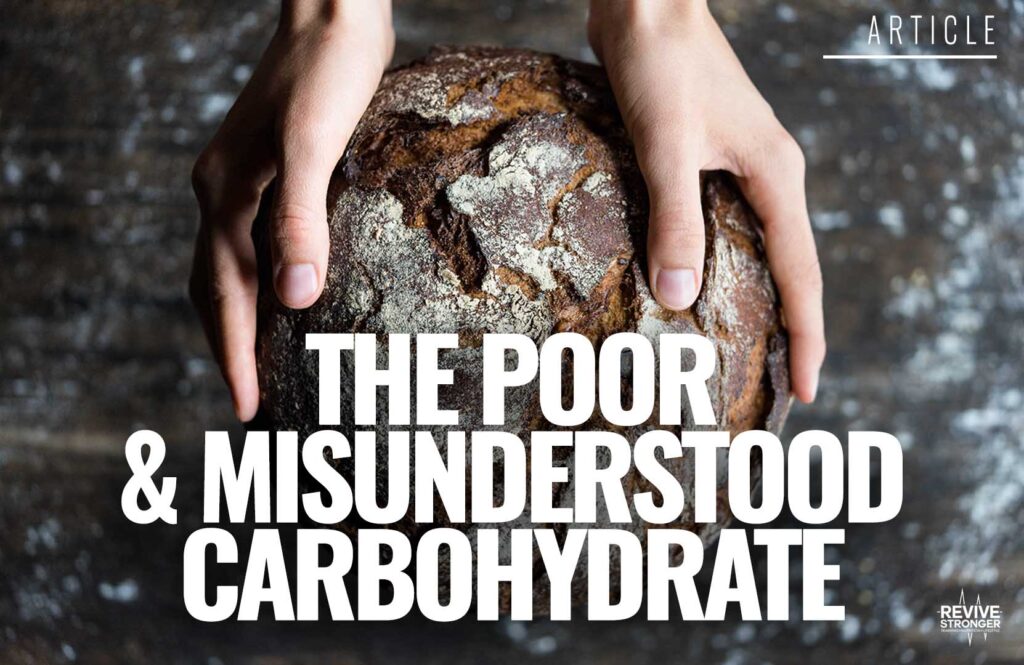
Revive Stronger
The Poor & Misunderstood Carbohydrate

Carbs for however long have been demonised.
Whether it be restricting them to lose weight, for example Atkins or The Ketogenic Diet.
Or calling them toxic and harmful, the cause for obesity, harming our health, say hello to Dr. Lustig.
People now have a skewed perception about carbohydrates, they see them as something that should be avoided if they want to remain healthy. The simple fact is no one needs to completely avoid carbohydrates, doing so is not required for health or fat loss. Anyone who restricts themselves needlessly of any food is missing out big time, and well who doesn’t love a carb heavy pizza?
Table of Contents
What are Carbohydrates?
First off I think it is important to give a bit of background to what carbohydrates actually are. Carbs are a collection of carbon, hydrogen, and oxygen molecules, which is where the shorthand CHO comes from. Sugars, starches, and fibres are all carbohydrates. These can be put into three general groupings; 1. monosaccharides 2. oligosaccharides 3. polysaccharides, you can think of these as the teams and then within each there are a bunch of different players for example glucose and fructose are monosaccharides whereas lactose and sucrose are oligosaccharides (I would note there is also a classification for Disaccharides, for which I am grouping into Oligosaccharides) and then finally starches and fibre are polysaccharides. All you really need to know is that polysaccharides are the most ‘complex’ and therefore take the most time to digest down to monosaccharides, more on that later.
Each of these players are found in different foods in various amounts for example see the following table taken from Lyle McDonald:
Many people seem a bit confused on what foods contain a significant number of carbs.
- Fruit
- Vegetables
- Bread
- Potato
- Sweets
The above all contain mainly carbohydrates, you’re not on a no carb diet if you’re eating fruit, sorry.
All carbohydrates are broken down and eventually released into the blood stream as glucose. That is worth repeating, all carbs are eventually broken down into glucose, ALL of them. The process of digestion begins in our mouths, then our small intestine, to our liver, then into the bloodstream to be used as fuel or stored in our liver or muscle as glycogen or if there is excess it’ll be turned into body fat. So we either use the energy then and there or store it for later use. Whether or not the fact it is stored as body fat matters depends on our overall energy balance, because you might be in a positive energy balance at breakfast, but if by the end of the day you have taken in less energy or equal energy to what you’ve burnt you won’t have stored extra fat, it will have been used as fuel.
What are Carbohydrates Role in our Diet?
Now we have an understanding of what a carbohydrate is and how it is digested lets look at what they provide for us. Glucose, what all carbohydrates are eventually broken down to, is essential for life. Our brain, central nervous system and skeletal muscle prefer it over any other fuel source. Carbs main purpose is to provide fuel for cellular function. However, carbs cannot be considered essential.
As when our carb intake is insufficient the body can transfer energy through the production of ketones (from fat). Also via a process called gluconeogenesis protein can be converted to glucose. So provided we have sufficient protein and fat in our diet it is argued we don’t need carbs at all. I might add however that both these are not equal substitutes. Plus do we really want to be taking from protein to provide our body energy? I think of it like taking wood from a bridge for a fire. Every-time we use wood (protein) we start breaking down our bridge (muscle), we begin to lose structure. Not good.
Hold on, carbs might not be essential for life but it’s essential for optimising high intensity/glycolytic exercise performance. That means if you want to sprint at your best, if you want to lift weights at your best, if you want to perform anything at high intensity well, you NEED CARBOHYDRATES.
Even Steve Phinney (noted ketogenic diet researcher and co-author with Jeff Volek of The Art and Science of Low Carbohydrate Living) can be quoted as follows, in perhaps his most famous scientific literature review:
“Therapeutic use of ketogenic diets should not require constraint of most forms of physical labor or recreational activity, with the one caveat that anaerobic (i.e, weight lifting or sprint) performance is limited by the low muscle glycogen levels induced by a ketogenic diet, and this would strongly discourage its use under most conditions of competitive athletics.”
As outlined in Your Tailor Made Diet body size, activity levels, other macronutrient intake, goals and preferences will alter the recommended amount of carbohydrates you consume. When it comes to optimising performance carbohydrate restriction is never the optimal way to go about things. Think of it like using the wrong fuel in your car, the car is not going to operate at it’s best.
Something else I need to add is that carbohydrates provide our bodies with fibre and micronutrients. The complex carbohydrates (polysaccharides) as seen in the above table are starches and fibres. You know things like baked beans, potatoes, fruits and vegetables, these guys provide you with a lot of good stuff you do not want to go without for long periods of time. Fibre is incredibly important, and I am going to go over some of the roles it plays for us.
Fibre is great for keeping you full, for two main reasons; low caloric density and slowed gastric emptying (slows digestion). Most foods high in fibre also have a low calorie density, for example a typical apple contains 80 calories and a whopping 5g of fibre. This is great because you can eat a lot for little calories, this 1) allows you to feel like you’re eating more, and 2) physically stretches your stomach which signals fullness to our brain. Also because of the way fibres react on digestion they slow the time which food takes to leave the stomach, another win for keeping us full.
Apart from fibre’s role in keeping us full, it also plays a very important role for gut health. Once in our digestive system they get broken down and produce substances that help decrease cholesterol levels and reduce risk of colon cancer. Pretty important don’t you think?
Finally the role most of us think of when fibre is in question; helping us poop. From making our transit time more efficient to increasing the size of our poop, fibre improves our regularity and overall gut health. One last point I would like to make is that fibre itself although a carbohydrate doesn’t provide our bodies with 4 calories per gram, in fact it is closer to 2, another plus of having a high fibre diet. So how much fibre do we want? A minimum recommended intake would be 25g a day. I get more specific in Your Tailor-Made Diet.
These complex carbohydrates are digested more slowly and therefore enhance satiety and blood sugar control. The more simple carbohydrates are digested and absorbed easily you can see elevations in blood sugar levels. Whether or not that is a problem is highly individual, but for most you are much better off prioritising the more complex, unprocessed starchy carbs.
In summary we now know that carbohydrates are important and required to perform at our best. The unprocessed, high fibre, complex carbs are really the ones we want to prioritise. Helping to keep our gut healthy, provide the most micronutrition and tend to allow us to manage our food intake more successfully.
Now we know carbs role in our diet, what about low carb diets for fat loss?
Low Carbohydrate Diets for Fat Loss
First off, what the hell is low carb anyway? To one person it means cutting out starches like potato, pasta etc. but they will eat fruit. To someone else it means getting in under 50g of total carbohydrates for the day, counting carbs in fruit all the way to those in their almonds. Remember, it doesn’t matter where they come from, carbs are carbs, all count. So who’s better definition to use than top nutrition researcher Alan Aragon:
- Low Carb Diet: 50-150 g Carb (10-30% given 2000 kcal).
- Low Carb Ketogenic Diet: <20-50 g Carb (4-10% given 2000 kcal).
In one study Low Carb diets caused more weight loss than Low Fat, furthermore the study saw low carb dieters with lower blood pressure and a healthier fatty acid balance. Hooray for low carb…hold on, lets listen to what the authors said: “Undoubtedly, the present findings demonstrate that a low carb has favourable effects on body weight and some cardiovascular risk factors…however, in the long-term and when compared with conventional therapy, the differences appear to be of little clinical significance, although statistically significant.” Which basically means whether you go low carb or low-fat, it doesn’t really matter in the long run, what matters is the overall calorie deficit.
Recently a thorough review of the full range of diet types, from low-carb to low-fat, and virtually everything in-between was made. In which they concluded: “Moreover, the difference in weight loss among these diets is only 1-2 kg or less, which appears to be of little clinical significance. Thus, overweight and obese people can choose many different weight-loss diets on the basis of their personal preferences.” This sounds very familiar to me, as I bang on about personal preferences a lot in How to Start Flexible Dieting, so what they’re saying is, if you like carbs then eat ’em, so long as you’re in a calorie deficit the results will be very similar. If you can go by preference then adherence is going to only improve, and with adherence comes consistency and by consistently being in a calorie deficit, you’ll lose fat.
Finally one study compared four diets that matched calories, 1) normal protein & carb 2) normal protein, low carb 3) high protein, low carb 4) high protein, normal carb. The greatest decrease in fat mass was associated with the high protein dieters, while nothing significant was seen between the change in body composition and the different intakes of fat and carbs. The authors thus concluded: “Body-weight loss and weight-maintenance depends on the high-protein, not on the ‘low-carb’ component of the diet.” So here we can clearly see getting sufficiently high protein intakes (which I explain in Your Tailor-Made Diet) will help drive fat loss, and so long as calorie intakes are level the proportion of carbs and fat doesn’t matter.
At Alan Aragon’s 2014 UK Conference he produced a table that went over all the low carb diet studies, of which 6 out of 12 favoured neither higher or lower carb, 3 favoured low carb and 3 favoured other dietary approaches. So what is clear from that overall view-point is that you’re not going to see improved markers of health and better fat loss results via low carb, but you will see both through a caloric deficit.
[bctt tweet=”It is the calorie deficit that dictates the results, not the fact you’re eating low carb.”]
I would like to also point out, that the success of the low carb, higher fat approaches are often down to the fact protein is increased, not because the diet is low carb. Think if you cannot eat potatoes, pasta or rice with your meals then you’re going to reach for things like omelettes, chicken salads, and other high protein, high fat combinations.
But…Sugar is Toxic?
Ah yes, I forgot that many have suggested sugar is toxic and well we now know sugar is sucrose and that is a carbohydrate. So is sugar toxic? The short answer is; it depends on the dose.
Sugar can be toxic, but so too can water, oxygen, and pretty much anything if consumed in excess. The devil is in the dose; sugar is not inherently toxic.
[bctt tweet=”You’re not going to suddenly collapse in a sugar induced fit because you licked a lolly pop. “]
What matters is dose and context. The average lethal dose of sugar is about 30 g/kg of body mass. So for me at 80kg I would need to consume 2400g of sugar. I know on average I consume around 150g of sugar, well under the 2400g, and my diet includes plenty of fruits but also chocolate and ice cream. In contrast, the average lethal dose of water is about 80g/kg, so I would need to drink 6400mls or 6.4 litres. And to be honest I easily consume 3 litres of water a day, so I am much more likely to cause myself harm through too much water consumption than through sugar at the rate I am going. Which is a bit ridiculous when as a population rather than being educated about how much carbs or water we need, we are told to have more of one and less of the other, I argue that isn’t helpful at all and could easily lead to harm. Take me for example, I could see something telling me how important is and how most people need to drink more, so I go and increase my intake, if I doubled it I could do myself some serious harm.
So when you put it into context you can clearly see that sugar is not inherently toxic.
But…Sugar is Addictive?
Sugar has not been shown to have the ability to cause an addiction like drugs can, and so do not compare it to them. Eating palatable food does trigger the same areas that are lit up in response to other addictive substances that make us feel good, but that is an emotional attachment, not the same as how a drug works. What therefore needs to happen is a behavioural change; acknowledge the fact sugar tastes good and you like it and that you therefore need to be mindful of how much you’re eating.
But…I lost loads of Weight Dropping Carbs?
Key here is weight. You see carbohydrates when stored as glycogen require 3g of water per 1g of glycogen. Thus if you cut out carbs, you will slowly deplete your stored glycogen, and with that drop a load of water weight. Therefore, it isn’t a huge drop in fat you’re seeing, it is an initial large drop of stored water weight. Once this has been cleared you will start seeing more usual drops in weight (assuming you are in a caloric deficit) as you would with carbs in your fat loss diet.
But…Carbs at Night make you Fat?
Hopefully this one has already been cleared up, if not you should read Your Tailor-Made Diet. You can eat all the carbs you like at night and stay lean, only when they contribute to a long term caloric surplus above that needed for lean muscle tissue will it make you fatter. You can cut them out after a certain time if you find it helps you keep to your nutritional goals, but there is no need to. To quote Alan Aragon:
[bctt tweet=”There are no night-time insulin fairies ready & waiting to store carbs in the fat tissue”]
— at least not at any greater rate than they would do so during the day.
Fat or Carbs? Which needs to go?
First up let me tell you neither needs to go! But after reading the above you now know exactly why we need carbohydrates in our diet and that they do not need to be completely dropped if we want to drop fat and stay healthy. You also know that protein is pretty darn important for not only maintaining fat-free mass but also promoting fat loss. Therefore, you are left with the question; should I drop my carb or my fat intake when trying to lose fat? Or maybe both…
Case Study – Steve Tagg (Low Carb)
- Goal: Fat Loss
- Total Weight Lost: 15lbs
- Average Carb Intake: 150g
- Average Carb % of total calories: 25%
Case Study – Billy Collins (High Carb)
- Goal: Fat Loss
- Total Weight Lost: 15lbs
- Average Carb Intake: 250g
- Average Carb % of total calories: 45%
Above you can see two of my clients who wanted to drop fat. Both saw a total drop of 15lbs lost, however Steve’s carb intake could be considered low at 150g, whereas Billy’s intake was relatively high at 45% of his total calories. My point here being that there is no one best way, and you need to adjust and find the best approach for you. Most of my clients follow a moderate approach, neither very low in carbs or fat.
Again you can look at the Mediterranean Diet, one that is typically 40% fat and has shown to really promote health. However, you can then look to some of the blue zones across the world, full of people living into their 100s, who’s diet is made up of over 50% carbohydrates. I’ll say it again, both have their place, and neither one is better than the other. What is clear is that prioritising unprocessed foods, fresh fruits and vegetables and eating lean protein is found in all health promoting diets.
In the words of Lyle McDonald:
[bctt tweet=”Not all fat is bad and not all carbs are good. “]
The source, the composition of the rest of the diet, the total amounts you’re eating of each, your activity level and other variables all factor in.”
My step by step guide for setting your Carbohydrate Intake:
- You find out how many calories you need for your goal, refer to Your Tailor-Made Diet.
- You should first set your Protein requirement, refer to Your Tailor-Made Diet for more detail or go with the baseline of 1g per pound.
- Next you set your Fat requirement; 0.3 to 0.6g per pound.
- The rest is then to be made up of carbohydrates.
So from the above you can see the real room for manoeuvre comes from how you set you fat requirement, do you go closer to the low or high-end? This is down to your preferences, tolerances and overall goals. As discussed already, so long as you have your calories right, and sufficient protein, the differences are going to be negligible.
Benefits of Lower Carb & Higher Fat
- Fullness: The combination of protein & fat can really provide long-term satiation.
- Pleasure: Higher fat foods are often found to be more palatable.
- More Weight Loss: for those who are insulin insensitive (low activity levels, older).
Benefits of Lower Fat & Higher Carb
- Fullness: seek high fibre foods, slowing digestion.
- Lean Body Mass (LMB) retention: mitigate hormonal adaption & preserved performance.
- More Weight Loss: for those who are insulin sensitive (active, younger).
The above are general recommendations, there is still high degree of variability in how people respond to differing dietary approaches. Try one approach, see how you get on, and if you don’t like it, try another, so long as overall a calorie deficit is in place and you have sufficient protein, you will see nice drops in body fat. This was clearly put in Helms et al recent review: “Carbohydrate and fat utilization as a percentage of energy expenditure at rest and various intensities has as much as a four-fold difference between individual athletes; which is influenced by muscle fiber-composition, diet, age, training, glycogen levels and genetics”. Thus careful monitoring of how you perform on different dietary approaches is important.
Oh and remember, there is no need to go high or low in either regard, a moderate approach may also be the most successful approach for you. Extremes on either is likely to hurt adherence. Furthermore, many of my clients and me included often do not even pay attention to the fat or carbohydrate in our diets, we just ensure we get sufficient protein and calories for our goals. That tactic is just one of the flexible pillars I explain in How to Start Flexible Dieting and it strikes a nice balance between being easy to stick to and strict enough to provide results.
A ‘Diet’ That Works
Fat loss, muscle growth or weight maintenance depends on our overall calorie balance. We need to first ensure that what we eat is providing sufficient fuel to support our goals. Equally important is once we are at our desired goal we can maintain it, in other words our eating habits must be sustainable. You need to say yes to ‘can you eat like you did today for the rest of your life?’. If no, results won’t stick.
Many diets are very extreme, providing fast results, others are based on pseudoscience with no sound nutritional principles. These often exaggerate the results they will provide and rarely provide a balanced diet. Some limit food groups, some rely on combining certain foods at particular times, others depend on a very limited range of foods you can eat. In practice these diets are very flawed. People get bored and give up before they really see any results, which is often good, because some of the results (such as a micronutrient deficiency) would be harmful.
What I have hopefully opened your eyes to here is that there are no ‘good’ or ‘bad’ food groups. Carbohydrates certainly have their place in our diet, just like fats and protein. The amount of each we need is largely individual and context dependent, no one is superior to the other, all are just different. The key is to provide your body with enough of each for your goals, with an understanding of what each provide.
What we finally come down to is a balanced diet, one that provides you with sufficient nutrition for your body’s needs and your goals. A diet that can become a lifestyle, that you enjoy, as an informed consumer of foods you are empowered to manipulate your body’s composition at will. You want to drop fat, you adjust your intake accordingly, you want to promote muscle growth, again you do the same. The way you eat does not need to dramatically change. You don’t cut carbs out suddenly. You just make small subtle changes to your lifestyle.
There are no banned foods, you understand what foods do for you; you can enjoy a diet based around preferences, which support your goals, covers your nutritional needs, doesn’t needlessly restrict you, is convenient and allows you to be sociable, so you can stick to it for the long run. That will be one hell of a successful approach.
That is where Flexible Dieting comes in.
References
- Langfort J, et al. The effect of a low-carbohydrate diet on performance, hormonal and metabolic responses to a 30-s bout of supramaximal exercise. Eur J Appl Physiol Occup Physiol. 1997;76(2):128-33.
- Lima-Silva AE, Pires FO, Bertuzzi R, Silva-Cavalcante MD, Oliveira RS, Kiss MA, Bishop D. Effects of a low- or a high-carbohydrate diet on performance, energy system contribution, and metabolic responses during supramaximal exercise. Appl Physiol Nutr Metab. 2013 Sep;38(9):928-34.
- Phinney SD. Ketogenic diets and physical performance. Nutr Metab (Lond). 2004 Aug 17;1(1):2.
- Havemann L1, West SJ, Goedecke JH, Macdonald IA, St Clair Gibson A, Noakes TD, Lambert EV. Fat adaptation followed by carbohydrate loading compromises high-intensity sprint performance. J Appl Physiol (1985). 2006 Jan;100(1):194-202.
- Bueno NB, de Melo IS, de Oliveira SL, da Rocha Ataide T. Very-low-carbohydrate ketogenic diet v. low-fat diet for long-term weight loss: a meta-analysis of randomised controlled trials. Br J Nutr. 2013 Oct;110(7):1178-87
- Schwingshackl L, Hoffmann G. Low-carbohydrate diets impair flow-mediated dilatation: evidence from a systematic review and meta-analysis. Br J Nutr. 2013 Sep 14;110(5):969- 70.
- Wu H, Wylie-Rosett J, Qi Q. Dietary Interventions for Weight Loss and Maintenance: Preference or Genetic Personalization? Curr Nutr Rep. 2013 Dec;2(4):189-98.
- Phinney SD, Bistrian BR, Evans WJ, Gervino E, Blackburn GL. The human metabolic response to chronic ketosis without caloric restriction: preservation of submaximal exercise capability with reduced carbohydrate oxidation. Metabolism. 1983 Aug;32(8):769-76.
- Beis LY, Willkomm L, Ross R, Bekele Z, Wolde B, Fudge B, Pitsiladis YP. Food and macronutrient intake of elite Ethiopian distance runners. J Int Soc Sports Nutr. 2011 May 19;8:7. doi: 10.1186/1550-2783-8-7.
- Verboeket-van de Venne WP, Westerterp KR. Influence of the feeding frequency on nutrient utilization in man: consequences for energy metabolism. Eur J Clin Nutr 1991, 45:161-169.
- Helms ER, Aragon AA, Fitschen PJ. Evidence based recommendations for natural bodybuilding contest preparation: nutrition and supplementation. Journal of the International Society of Sports Nutrition 2014, 11:20 doi:10.1186/1550-2783-11-20
- John Berardi & Ryan Andrews. The Essentials of Sport and Exercise Nutrition. Precision Nutrition 2013.
- Keim NL, et al. Weight loss is greater with consumption of large morning meals and fat-free mass is preserved with large evening meals in women on a controlled weight reduction regimen. J Nutr. 1997 Jan;127(1):75-82.
We are a personal coaching service that helps you achieve your goals. We want you to become the best version of yourself.

















Comments are closed.